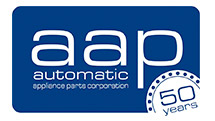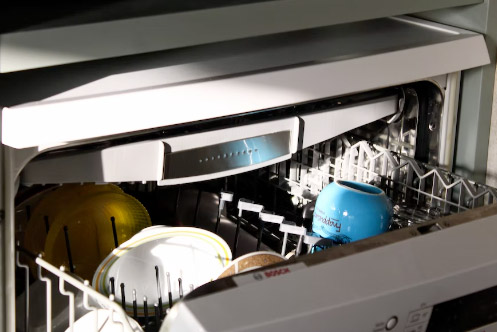How Preparing Your Appliances for Winter Is Helpful
You Are Here: Home > Automatic Appliance Parts Blog > How Preparing Your Appliances for Winter Is Helpful
*** Please be aware that Norridge is the only shipping facility. Inventory on-hand at all other branches is unavailable for immediate shipment. ***
As temperatures continue to drop post-summer, you should be considering how to prepare your appliances for winter. Common household appliances are vulnerable to cold temperatures. When the mercury dips below freezing, you may find your appliances malfunctioning or worse. In some cases, extreme cold can cause breakages or explosions. To keep your home safe and your appliances in good working order, it's essential to take preventive measures. Read on to discover how preparing your appliances for the winter can save them over time, what benefits you can reap, and what specific measures can take.
Why It's Helpful To Prepare Your Appliances for Winter
It's helpful to prepare your appliances for winter because freezing temperatures can wreak havoc on their mechanical and electrical components. Your washing machine and dishwasher, for example, both use water, which can freeze. Should that happen, it not only renders these appliances unusable but also jeopardizes the integrity of their water intake valves. Later, when temperatures climb again, a broken water intake valve could cause water to leak onto your floors.
Even appliances that are supposed to keep things cold can sustain damage during winter. Consider your refrigerator, namely secondary fridges you keep in the garage or basement. Refrigerators function by way of a compressor that activates when the internal temperature exceeds a certain threshold. When the air outside of the refrigerator is colder than the air inside, the compressor may fail to activate since it considers the temperature to be below the threshold. The consequence here is that the internal temperature climbs, thus spoiling the contents within the unit.
In cases of highly extreme cold, the temperature can even freeze the oil that circulates in the compressor. If the refrigerator is running as the freezing occurs, the compressor may burn out. Moreover, if the freezer section includes an ice maker, it requires a connection to a water supply, making it susceptible to the same hazards as your washing machine and dishwasher.
Other appliances may present problems during wintertime owing to a combination of circumstances. Your dryer, for example, always presents some degree of a fire hazard if you don't regularly clean out the lint trap, but the danger increases in the dry, warm conditions of a heated home.
There's also your stove and oven to worry about, with which the biggest wintertime concern is accuracy. Given both the temperatures and the holidays, you may find yourself using these appliances more often during the winter, so getting them prepared for the season can help to ensure that your dishes come out perfectly cooked and browned every time.
Benefits of Preparing Your Appliances for Winter
Aside from preventing breakdowns, hazards, and spoilage, preparing your appliances for winter can provide you with several benefits. One major benefit is improved operational efficiency. Appliances such as your dryer, stove, and oven simply function better if you take preparatory measures. Keeping them clean prevents heat loss, thus ensuring more efficient use of their heat. Your refrigerator, too, operates more efficiently if its condenser can accurately read the temperature.
Another major benefit is cost efficiency. When your appliances are operating as they should, they tend to use less energy. Lint-free dryers get the job done more quickly, clean electric cooking appliances cycle on less frequently, and warmer water enters and exits basins more freely. By investing a bit of time, effort, and money, you can enjoy financial savings in the long run.
How To Prepare Your Washing Machine and Dishwasher
When it comes to your washing machine, the idea behind winterization is to prevent ice in your hoses and pumps, as well as leaking problems in the future. There are two preventive measures you can take, either individually or together. One is to wrap the machine's water hoses with pipe insulation, which can help to regulate the temperature of the water. The other is to disconnect its water lines altogether, reconnecting them only when you need to use the machine.
As for your dishwasher, consider any of the following preparatory actions to prevent unwanted outcomes:
- Run the kitchen faucet until the water is hot. The faucet and dishwasher often draw water from the same source, and pre-warming the water can help prevent freezing in the pipes.
- Clean the dishwasher by draining it, disconnecting the water supply, cleaning the filters and sump pit, and clearing the drain line/valve.
- Add antifreeze by draining the hose, pouring up to half a gallon of non-toxic antifreeze into the basin, running the fastest wash setting, and then shutting off the machine before the rinse cycle. Then, before you wash your next load, run a few full wash cycles to clear out the antifreeze.
How To Protect Your Refrigerator
To prepare your refrigerator and protect its contents, regularly clean the condenser coils and door seals. Using both a vacuum cleaner and a stiff brush can help you maximize debris clearance. Also, monitor the performance of the refrigerator and make sure the motor fan is operating properly. Contact a repair specialist if you encounter any malfunctions.
How To Safeguard Your Dryer
Safeguarding your dryer is one of the easiest preparations for winter. Before every load you dry, thoroughly clean the lint trap. For the most comprehensive results, use the hose attachment of a vacuum cleaner to remove the lint from the trap slot, and run the trap itself under a faucet. Let the trap dry before reinserting it into the slot.
How To Optimize Your Stove and Oven
As with your dryer, the key to optimizing your stove and oven is regular cleaning. Use your preferred cleaning solution to clean your burners and oven interior of burnt-on grease and food debris, and purchase an accurate oven thermometer to monitor the accuracy of its internal thermostat. Additionally, consider hiring a technician to inspect the oven, as they can diagnose and repair problems arising from your gas or electrical hookup.
To learn more about how to prepare your appliances for the winter weather, feel free to get in touch. If you'd like to speak directly with an associate, call 1-800-323-0270. You can also send an email to info@aapparts.com or submit your comments through our contact page. Once we receive your message, we'll reach out to you as soon as we can.
Alternatively, drop by one of our stores in the Chicagoland area. We operate seven locations and love to help our customers get the best value from their appliances. Operating hours may vary from store to store, so make sure to check our locations page for more information.

 Shopping Cart [empty]
Shopping Cart [empty]









